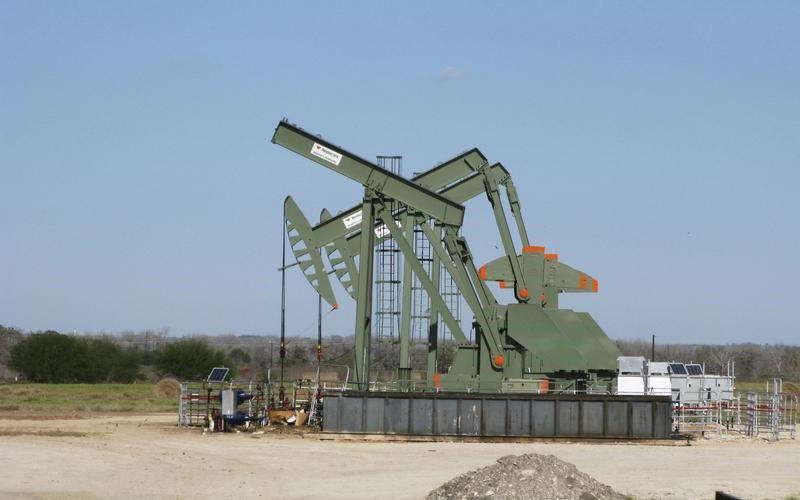By Ron Bousso and Julia Payne
LONDON (Reuters) - For major trading houses that ship millions of barrels of oil every day, the prospect of diminishing fuel demand and a shift to renewable power poses a brain-racking challenge with few obvious solutions.
"It is a very fair question - what the hell are we going to do?" said Ian Taylor, chief executive of the world's top oil trader Vitol, which trades seven percent of the world's oil.
"It's not obvious. We will still have a business, I'm sure, but it may well be a very different business," he told the Reuters Commodities Summit.
Vitol, as well as rivals including Glencore (L:GLEN) and Gunvor, sees many growth opportunities in the bread-and-butter business of oil trading as economies in Asia, Latin America and Africa grow producing demand for oil.
But beyond that, uncertainties loom.
Major commodity traders and oil companies such as Royal Dutch Shell (L:RDSa) and BP (L:BP) expect oil consumption to slow in the coming years as car engines become more efficient, sales of electric vehicles accelerate and wind and solar power becomes more dominant.
Taylor, for example, sees oil demand peaking "sometime late in the next decade" or even earlier in some scenarios. Others see demand growing into the 2040s albeit at a much reduced pace.
Peak oil scenarios - http://reut.rs/2xEsd9d
Governments around the world are also gearing up to reduce their reliance on fossil fuel by the end of the century in order to combat global warming.
Traders have thrived in recent decades by moving barrels from supply centres such as the Middle East and the North Sea to consumption hubs in Asia.
Marco Dunand, chief executive of Mercuria Energy, said that while there was still a lot of uncertainty over the path the energy markets will take, traders should position themselves across the spectrum as arbitrages will always exist.
"In all the scenarios you can have on energy, whatever they are, there is always going to be a need to have someone there to balance supply and demand."
Swiss-based Mercuria is also growing its power business. Having acquired Noble Group's (SI:NOBG) U.S. gas and power business recently. It is also studying ways to enter power markets in China, Dunand said.
But other traders see few opportunities in power trading due to technical challenges of storage and transportation.
"It is important to recognise that power is not a commodity. It's a derivative of a commodity so it doesn't have the same driving forces that you have in a commodity, in extracting it and transporting it," Torbjörn Törnqvist, the chief executive of trading house Gunvor told the summit.
ENERGY TRANSITION
Similarly, while oil majors are also set to invest heavily in the petrochemical industry, betting on growing demand for plastics, traders see only limited opportunities there.
"Petrochemicals in terms of trading business is still relatively small compared to the oil industry so I don't see that as a big future for trading companies," Glencore's global head of oil, Alex Beard, said.
Vitol earlier this year invested in a joint venture to develop energy storage plants in Britain to help manage supply fluctuations from renewable power such as wind and sun.
It also looked at offshore wind, according to Taylor. But the forays into renewables represents a fraction of Vitol's business, with turnover of $152 billion in 2016.
Glencore, also a mining giant, is set to ride on the expected wave of electric vehicle growth thanks to increased demand for metals such as cobalt, copper and nickel used in batteries, Beard said.
Gunvor, Vitol and more recently Glencore have all invested in refineries and petrol stations around the world to secure markets for oil products, as demand is set to reach 100 million barrels per day by the end of the decade.
"I don't think the oil market is broken in terms of opportunities for trading companies," Beard said.
"There are 1 billion vehicles on the road today and the electric vehicle part of that is under 2 million vehicles globally. Whilst growth in electric vehicles is exponential, there is still substantial growth in the combustion engine for the foreseeable future."
Shell, BP and many of the world's leading energy companies are increasingly diversifying into gas, the least polluting fossil fuel, as well as renewables and power trading in order to secure a foothold in the energy transition.
Trading houses are also growing their liquefied natural gas (LNG) trading operations to tap into the gas market that is set to expand rapidly to meet rising demand for power. But even there, margins are relatively small as the market remains dominated by producers and buyers.

"At the end of the day it isn't the biggest or the largest who survive in Darwin's theory, it is the one who can adapt the best," Dunand said.